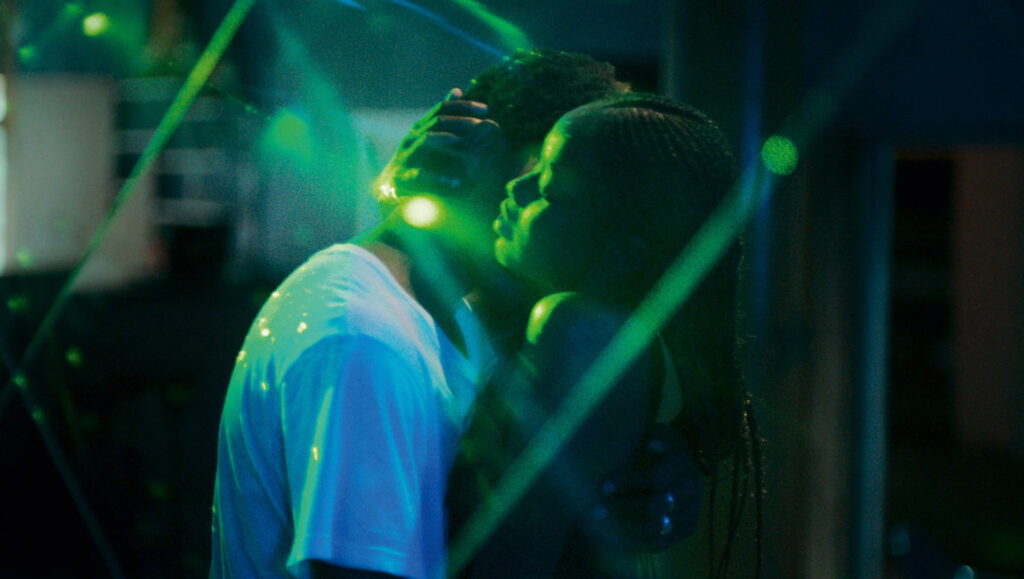Mati Diop’s debut feature Atlantics utilizes multiple narrative modes: social-realist drama, love story, detective procedural, ghost story, supernatural possession tale. And if the seams between these disparate elements are sometimes visible, it’s to the film’s benefit, marking this work as a very personal, lovingly handcrafted piece. The initial scenes focus on a construction site in Dakar, Senegal, where workers are building a massive luxury tower (rendered in CGI for later distant shots). The workers haven’t been paid for months, and they’re haranguing their bosses for their missing back wages. But they’re met with nothing more than lame, responsibility-avoiding excuses. One of these workers is Souleiman (Ibrahima Traoré), who escapes the stresses of his job by stealing fleeting moments with his girlfriend, Ada (Mama Sané). At their last meeting, Souleiman is clearly troubled by something that he’s not telling her about. Ada finds out what this is later that night, when she learns that Souleiman, along with a number of his workmates, have left for the open sea on a pirogue to Spain to pursue better work opportunities. This leaves Ada and her girlfriends, the paramours of the departed men, feeling abandoned and bereft. Ada is especially heartbroken, since this leaves her to face an arranged marriage to Omar (Babacar Sylla), a rich, older man whom she doesn’t love.
When news arrives that Souleiman and the other men have apparently perished at sea, this sends Ada into an even deeper depression. She very reluctantly submits to the marriage, a glum presence among her celebrating relatives and in-laws. Events take a surreal turn when Omar’s marriage bed suddenly bursts into flames, and Ada’s friends tell her they’ve seen Souleiman in the area, even though he’s supposed to be dead. Then a group of young women, prowling the night like zombies, with milky white eyes, descend on the mansion of the African Trump figure overseeing the tower project, demanding lost wages. Atlantics finds a uniquely potent way to address the hot button issue of the mass migration of people from poorer to richer countries, by injecting poetic, supernatural elements. Diop also gives this tale an explicitly feminine, slant focusing on the women left behind. Although this is essentially a tragedy, there’s a hopeful conclusion, as Ada, in the film’s triumphant final moments, sees a path to personal liberation despite the dire circumstances.
Published as part of November 2019’s Before We Vanish.


Comments are closed.